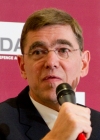 |
Gen. Stéphane Abrial, Supreme Allied Commander Transformation, North Atlantic Treaty Organization (NATO)
Gen. Stéphane Abrial received appointment by the North Atlantic Council as Supreme Allied Commander Transformation on 29 July 2009. He is the first European to be permanently appointed as head of a NATO strategic command.
Abrial began his military service in 1973. After an exchange programme in the US Air Force Academy, he graduated from the French Air Force Academy in 1975. He completed his pilot training in 1976. He is also a graduate of the U.S. Air War College, Montgomery, Alabama and of the French Institute for Advanced Studies in National Defence (IHEDN) in Paris. Abrial has extensive experience both as a fighter pilot and an operational commander. He has a wide-ranging background that includes operations in coalition environments, at the tactical, operational and strategic levels. He served in a unit of the German Luftwaffe from 1981 to 1984 and with a unit of the Greek Air Force in 1988. In 1990 and 1991, he took part in the liberation of Kuwait as commander of the French Air Force's 5th Fighter Wing during Operation Desert Storm. From 1996 to 1999, he served at the NATO International Military Staff in Brussels.
He acquired broad experience in political-military matters through several appointments to the private offices of the French Prime Minister and President, and went on to serve as head of French air defence and air operations, and finally as Air Force Chief of Staff from 2006 to 2009. He has, among other distinctions, been elevated to the rank of Grand Officer of the French Legion of Honour, and Commander of US Legion of Merit, and was awarded the German Verdienstkreuz der Bunderwehr (silver).
|
 |
Pascale Andréani, former Ambassador, French Delegation to NATO
Pascale Andréani has been Ambassador of the French Delegation to NATO from 2008 to March 2011. She had a long career working with European affairs. Prior to joining the French NATO delegation, she was Spokeswoman of the French Ministry of Foreign and European Affairs. Between 2005 and 2007, she was Secretary General of European Affairs whereby she advised the Prime Minister on European Affairs, (SGAE successor to SGCI). From 2002 to 2005, she was Secretary General of the Inter-ministerial Committee for the European Economic Cooperation. Before that, she was Director of European Cooperation at the Ministry of Foreign Affairs. Between 1998 and 2000, Andréani was Minister Counsellor at the French Embassy in London, after having consulted the Presidency in European Affairs and having served as Deputy Director of the United Nations and International Organisations. From 1995 to 1997, Andréani was Director and Spokeswoman of the cabinet of the Minister of Budget. She was also Head of the CFSP at the Directorate of Political Affairs and Director of the cabinet of the Minister of European Affairs. In 1990 she was Deputy Secretary General of the Secretariat General of the Inter-ministerial Committee for issues concerning European Economic Cooperation after having been Secretary General of the Inter-ministerial Mission for Central and Eastern Europe. Before that, Andréani was Deputy Director of the Directorate of Economic Affairs. Between 1984 and 1989, she was working at the Ministry of Foreign Affairs, from 1982 to 1984 she was Foreign Secretary assigned to the French permanent Mission to the United Nations.
|
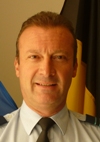 |
Brigadier-General Johan Andries, Military Representative, Permanent Representation of Belgium to the European Union
Brigadier-General Johan Andries was appointed Belgian Military Representative to the EU Military Committee in July 2011. He was previously the Head of the Belgian EU Presidency Task Force for security and defence matters. From 2006 to 2009 he worked for the Belgian Ministry of Defence on EU-matters and relations with the European Defence Agency (EDA). From November 2005 to March 2006 he was Deputy Commander of Kabul Airport within the ISAF VIII mission in Afghanistan. He was previously Flying Group Commander at 1 Training Wing at Beauvechain, Belgium from September 2003 to October 2005.
Andries was also military professor at the Royal Defence College in Brussels and Head of the Operational Conversion Unit (OCU) F16.
|
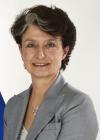 |
Claude-France Arnould, Chief Executive, European Defence Agency (EDA)
Claude-France Arnould has worked on defence matters in a variety of EU positions. She led the Crisis Management and Planning Directorate (CMPD) at the General Secretariat of the Council of the European Union, between 2009 and 2010, and as Director for Defence Issues at the General Secretariat of the Council of the European Union from 2001 to 2009 (in charge of operations, military capabilities, partnerships and chair of the EU Satellite Centre Board). Earlier in her career (1998-2001), Arnould worked as Director of International and Strategic Affairs at the French National Defence General Secretariat /Prime Minister (preparation of national "Council of Defence", CIEMG / interagency process for weapons exports control, armaments and space issues). Arnould started her career at the French Ministry of Foreign Affairs, as Desk Officer at the North America Directorate (1981-1983). She then became Desk Officer at the Economic and Financial Affairs Directorate, at the French Ministry of Foreign Affairs (1983-1986), responsible for EC trade policy and external relations. After serving at the Private Office of the Minister for European Affairs (dealing with Community issues), in 1987, she became Secretary-General of the French National School for Public Administration (ENA), until 1989. In 1989, she was appointed Deputy Director of European Community Affairs, at the French Ministry of Foreign Affairs (in charge of external relations, trade, budget, institutions, CAP and development). She was then posted in Germany, as First Counsellor of the French Embassy (1994-1998). Arnould has been "Ministre plénipotentiaire" (French Ministry of Foreign Affairs) since June 2001. She is a former student of the Ecole normale supérieure, and holds an post-graduate degree (aggrégation) in Classics and a degree in art and archaeology. Arnould is a former student of the Ecole Nationale d'Administration (ENA) and has been awarded the distinctions of Chevalier de la Légion d'honneur, Officier de l'Ordre National du Mérite and Bundesverdienstkreuz Erster Klasse.
|
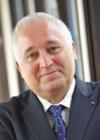 |
Patrick Auroy, Assistant Secretary General for Defence Investment, North Atlantic Treaty Organisation (NATO)
Lieutenant General (Armaments) Patrick Auroy graduated from the Ecole Polytechnique (1975), the ENSAE (French Aeronautics and Space Academy 1980), and the EPNER (French Flight Test Crew Academy, 1981), and was given responsibility for certification testing at the DGA Flight Test Centre (CEV) in Brétigny (1981 to 1985). Following his appointment as Head of the Helicopter Test Branch, he completed the restructuring and merging of helicopter activities in Istres (1986). In 1988 he took over the technical management of the Franco-German Tiger Helicopter Programme at the DGA Directorate for Aeronautics in Paris. From 1989 to 1992 he was Technical Deputy Director of the DGA Flight Test Centre in Istres. In 1992 he was appointed as Technical Adviser (Aeronautics and International Affairs) to the Head of the DGA. In addition, in 1993 and 1994 he was a rapporteur in the Commission in charge of the White Paper on Defence and then in the Mission for State Reform (economic sector). He was Head of the Flight Test Centre in Istres from 1994 to 1998. In September 1999, he became Air Warfare Force System Architect at the DGA, dealing in particular with strategic studies in air and missile defence. From 1999 to 2003 he was the French representative in the NATO Conference of National Armaments Directors (CNAD) Missile Defence Project Group (MDPG). In 2002 he was appointed as Deputy Director of the Force System Architecture Department. In August 2004 he was promoted to the post of DGA Director for Force Systems and Trend Analysis and became a member of the DGA Executive Committee. In 2005, he was appointed as Director for Force Systems and Strategies, responsible, in the armaments field, for preparing future systems, research and technology policy, international cooperation, in particular through NATO and the EU, and industrial issues. He was also involved in the 2008 White Paper on Defence and National Security. He was deeply involved in the reform the DGA, and was promoted to the post of Deputy Director General on 9 October 2009. He held that post until his appointment as NATO Assistant Secretary General for Defence Investment on 4 October 2010.
|
|
Alyson Bailes, Visiting Professor, University of Iceland and Former Political Director, Western European Union (WEU)
Alyson J.K. Bailes is currently Visiting Professor at the University of Iceland in Reykjavik, and was Director of the Stockholm International Peace Research Institute (SIPRI) from 2002 to 2007. Bailes’ career was spent largely in the British Diplomatic Service, including at the UK Delegation to NATO in Brussels, at the EU internal policy desk in London, and as part of an EU "Wise Men" study team on institutional reform. She was selected in 1986 to be the Deputy Head of Mission at the British Embassy in Beijing, where she spent two and a half years, including the time of the Tian'anmen Square events, and during this period was part of the Sino-British negotiating team for the future of Hong Kong. In 1990-94 she was Deputy Head of Mission at the British Embassy in Oslo, and in 1994-96 Head of the FCO Security Policy Department. From 1996 to 1997 Bailes was a Vice-President responsible for security policy programmes at the New York-based East West Institute, and from 1997 to June 2000 the Political Director of the Brussels-based European defence institution Western European Union. From November 2000 to June 2002 she was British Ambassador in Helsinki, Finland.
|
|
Jean-François Bureau, Contrôleur Général des Armées, Ministry of Defence, France
Jean-François Bureau is the Contrôleur Général des Armées in the Ministry of Defence France. He joined the French government in 1981 as a Parliamantary Advisor for defence affairs in the National Assembly. He went on to fill numerous advisory positions, including time with the Ministry of Defence in 1983 and the Public Affairs Office. In 1990 he became Head of the Information and Public Relations Office (SIRP) of the Ministry of the Interior, before becoming Counsellor of the Minister of Defence for Information and Communication, and later Head of the press office of the Presidency of the Republic until 1994. From 1998 until 2007, he was Spokesperson and Director for Information and Communication at the French Ministry of Defence. In 2007, he became the Assistant Secretary General for Public Diplomacy at NATO.
|
|
Rik Coolsaet, Head of the Department of Political Science, Ghent University
Rik Coolsaet is Director of Security Studies at the Royal Institute for International Relations in Brussels and Professor of International Relations at Ghent University.$0 He has held several high-ranking government positions, including deputy chief of staff of the Belgian Minister of Defence (1988-1992) and deputy chief of staff of the Minister of Foreign Affairs (1992-1995). He has written and commented extensively on international relations and Belgian foreign policy. Most recently he wrote De wereld na elf september (The world since 9/11). He completed the first comprehensive study on the history (including the domestic sources) of Belgian foreign policy (Belgium and its foreign policy 1830-2000, 3rd revised edition, in Dutch and French, resp. 2001 and 2002). His present research includes the analysis of the evolution of diplomacy, long-term change patterns in international relations and the architecture of global governance.
|
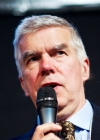
|
Robert Cooper, Counsellor, European External Action Service (EEAS)
Robert Cooper was Director General for External and Politico-Military Affairs in the Council of the European Union until 2011 where he moved to the EEAS. He was previously a senior British diplomat whose FCO career was divided broadly between Asia and Europe. From 1989 to 1993, he was Head of the Policy Planning Staff. In the 1990s, he was Director for Asia and was then Deputy Secretary for Defence and Overseas Affairs in the Cabinet Office. Before moving to Brussels in 2002 he was Special Representative for the British Government on Afghanistan.
|
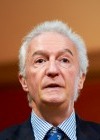
|
Gilles de Kerchove, EU Counter-Terrorism Coordinator, Council of the European Union
Gilles de Kerchove is the European Counter-Terrorism Coordinator since 2007. De Kerchove also holds professorship positions at the Catholic University of Louvain, the Free University of Brussels and the University Faculty Saint Louis (Brussels). Prior to this, de Kerchove was Director for Justice and Home Affairs at the EU Council Secretariat. From 1999 to 2000, he served as Deputy Secretary of the committee that developed the European Union’s Charter of Fundamental Rights.
De Kerchove was Head of Cabinet of the Deputy Prime Minister of the Federal Government of Belgium, Minister of Justice and Minister for SMEs between 1989 and 1992. After that, he held the same position for the Deputy Prime Minister of the Federal Government of Belgium, Minister of Justice and Minister of Economic Affairs of the Belgian Government.
De Kerchove obtained a degree in Law from the Catholic University of Louvain and an LLM from Yale Law School.
|
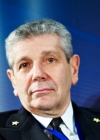 |
Admiral Giampaolo Di Paola, Chairman of the Military Committee, North Atlantic Treaty Organisation (NATO)
Admiral Giampaolo Di Paola joined the Italian Navy in 1963 and graduated from the Naval Academy in 1966. Soon after the graduation in 1967 he attended the Submarine School and underwent fleet training onboard submarines. He served in junior officer appointments in conventional submarines and commanded the submarines "Cappellini" and "Sauro". From 1981 to 1984 Giampaolo Di Paola served as Anti Submarine Warfare and Undersea Warfare Program Officer, Long Term Planning Branch, in the Supreme Allied Command Atlantic in Norfolk, Virginia (USA). In 1984 he assumed command of the frigate "Grecale". Thereafter, in 1986, he was appointed to the Navy Staff in Rome as Plans and Programs Branch Chief in the Directorate of Financial Planning. From 1989 to 1990, as a Captain, he commanded the aircraft carrier "Garibaldi". In 1990 he returned to the Navy Staff and was appointed as Executive Assistant to the Deputy Chief of Staff (1990-91), then as Chief of Naval Plans and Policy Branch (1991-92), and finally as Assistant Chief of Staff for Plans and Operations (1993-94). With the rank of Rear Admiral (lower half) in 1994 he was assigned to the Defence Staff in the Ministry of Defence where he became Chief of the Directorate of Defence Policy (1994-98). In this position he took active part as far as the planning of the Italian contribution to the NATO effort for the stabilization of the Balkans and for the Italian-led Operation in support of Albania in 1997. From 1998 to 2001, with the rank of Rear Admiral, he assumed the position of Chief of the Cabinet Office of the Ministry of Defence. On the 1st of January 1999 he was promoted Vice Admiral. In March 2001 he was appointed Secretary General of Defence / National Armaments Director. He was promoted Admiral on 10 March 2004 on becoming Chief of Defence. In this capacity he had the overall responsibility for the policy and planning of the Italian Armed Forces and he did hold planning and command responsibility for Italian Forces participation in NATO, EU and Coalition operations conducted in Afghanistan, Iraq, the Balkans, the Mediterranean, Pakistan and in the United Nations Operation in Lebanon. As of 27 June 2008, he is the Chairman of the NATO Military Committee.
|
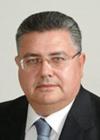 |
Ambassador Hüseyin Diriöz, Assistant Secretary General for Defence Policy and Planning, North Atlantic Treaty Organisation (NATO)
Ambassador Diriöz is a career diplomat who served his country for 30 years before he joined the NATO International Staff as Assistant Secretary General for Defence Policy and Planning on 18 October 2010. He first joined the Turkish Ministry of Foreign Affairs in 1978 and served in Kabul and Strasbourg before attending the NATO Defence College in Rome in 1987/88. He then returned to the Ministry of Foreign Affairs for a further year before joining the Turkish Delegation to NATO for four years. In 1993, Ambassador Diriöz joined the NATO International Staff as Head of the Defence Policy Section and in 1996 he returned to the Ministry of Foreign Affairs in Ankara. From 1998 to 2000 he was Minister-Counsellor in the Turkish Embassy, Washington DC, and on his return he became the Spokesman for the Ministry of Foreign Affairs. From 2004 to 2008 he was Turkey’s Ambassador to Jordan after which he returned to the Ministry in Ankara for a year before becoming the Chief Foreign Policy Advisor to the President of Turkey, Abdullah Gul.
|
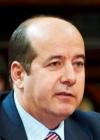 |
Dumitru Sorin Ducaru, Ambassador, Delegation of Romania to NATO
Ambassador Ducaru was appointed Romania’s Permanent Representative to the North Atlantic Council in September 2006. Prior to his assignment to NATO, from 2001 to 2006, he served as Romania’s Ambassador to the United States of America. In the period 2000 - 2001, Ambassador Ducaru has served as Permanent Representative of Romania to the United Nations in New York. Ambassador Ducaru joined the Romanian Ministry of Foreign Affairs in 1993, assuming various posts as part of the policy planning team on Euro-Atlantic Integration issues, counselor to the Minister, Director of the Minister's office, spokesman of the Ministry of Foreign Affairs, head of the division for NATO and Strategic Issues and Deputy Chief of Mission at the Romanian Embassy in Washington D.C. In 2000 Ambassador Ducaru was awarded by the President of Romania the national order of “Faithful Service” in rank of Commander, in the year 2006 the order for “Diplomatic Merit” and in 2008 he was awarded the rank of Knight of the national order “The Star of Romania”. In 2003 he received the title of “Ambassador of the Year”, from the Minister of Foreign Affairs of Romania.
|
 |
Christian Ehler, Member of the Committee on Foreign Affairs, European Parliament
Dr. Christian Ehler has been a Member of the European Parliament since 2004 and is a Member of the Bureau of the German CDU/CSU Group in the European Parliament. He is a member of the Committee on Industry, Research and Energy, the Subcommittee on Security and Defence (SEDE) and a substitute member of the Committee on Foreign Affairs (AFET). Since 2009 he is also Chairman of the Delegation for relations with the Korean Peninsula (DKOR). Ehler is the EP's rapporteur on the Security Research Programme (within the framework of FP7) and the rapporteur of the AFET/SEDE Initiative report on “Civilian-military cooperation and the development of civilian-military capabilities”. He has served as a parliamentary member of the European Security Research Advisory Board and as parliamentary observer of the European Security Research and Innovation Forum.
|
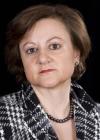 |
Cristina Gallach, Head of Unit Communications in the Directorate General for Press, Communication and Transparency, Council of the European Union
Cristina Gallach has been Head of Division in the Council of the European Union since October 1999. Until 2009 she was also Spokesperson and Chief Media Advisor of the High Representative of the European Union for the CFSP Dr. Javier Solana. From 1996 to 1999 she was Deputy Spokesperson of NATO and Chief Media Advisor for the Secretary General, Dr. Solana. Gallach started her career as a journalist, first for El Periódico, at the Spanish News Agency (EFE), for Spanish Television (TVE), for the daily El Noticiero Universal as well as for radio. She worked in Spain and abroad, mostly in Russia and the USA.
|
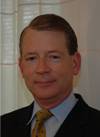 |
Bates Gill, Director, Stockholm International Peace Research Institute (SIPRI)
Bates Gill is currently the Director of the Stockholm International Peace Research Institute, and holds the Freeman Chair in China Studies at the Center for Strategic and International Studies in Washington, DC. He has previously held positions at the Brookings Institution, where he was the inaugural Director of the Center for Northeast Asian Policy Studies, and at the Center for Nonproliferation Studies of the Monterey Institute of International Studies. He is a member of the Council on Foreign Relations and the International Institute for Strategic Studies, and has consulted for a number of multinational corporations and government agencies. From 1993 to 1997, he initiated and led the East Asia Arms Control and Security Project at SIPRI.
|
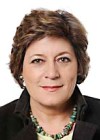 |
Ana Maria Gomes, Member of the Subcommittee on Security and Defence; Subcommittee on Humand Rights, European Parliament
Ana Gomes is a member of the European Parliament’s Subcommittee on Security and Defence and of the Foreign Affairs Committee. Gomes is also a member of the Delegation for Relations with Iraq and a substitute member of the Committee on Civil Liberties, Justice and Home Affairs, the Delegation for Relations with the United States and the Delegation to the ACP-EU Joint Parliamentary Assembly. She was a member of the Temporary Committee on the alleged use of European countries by the CIA for the transport and illegal detention of prisoners. Gomes started her diplomatic career in 1980. She served as diplomatic counsellor to the Portuguese President (1982-1986), as First Secretary at the Portugese Permanent Mission to the UN in Geneva (1986-1989) and as Counsellor in Portugal's embassies in Tokyo and London (1989-1991; 1991-1994). She was a member of the Portuguese delegation for the Middle East peace process during the Portuguese Presidency of the EU (1992), and director of the office of the Secretary of State for European Affairs in Lisbon (1995-1996). She coordinated Portugal's delegation at the UN Security Council in New York (1997-1998). In 1999, Gomes was posted in Jakarta, where she played a role both in the process leading up to the independence of Timor Leste (East Timor) and in the re-establishment of diplomatic relations between Portugal and Indonesia. She was Ambassador to Indonesia from 1999 to 2003, and in 2003-2004 was Secretary for International Relations of the Portuguese Socialist Party. She has been a member of its National Committee since 2002.
|
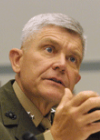 |
Edward Hanlon, President, Raytheon International Europe
Edward Hanlon Jr. is President of Raytheon International, Inc. Europe, based in Brussels, Belgium. He is responsible for Raytheon’s International Business Development for Europe, with offices in Belgium, France, Poland, Germany, Greece, Spain and Turkey, representing all Raytheon Operating Companies. Before joining Raytheon in January 2007, Hanlon was the U.S. Military Representative to the NATO Military Committee. He worked closely with the military representatives of NATO and Partnership for Peace member nations to develop policy recommendations for the political authorities of the alliance. Prior to assuming this post, he was the Commanding General of the Marine Corps Combat Development Command and Deputy Commandant for Combat Development. Hanlon retired from the Marine Corps in January 2007 after 38 years of service, which included a broad range of command, operational, staff and joint assignments throughout the United States, Europe and Asia.
|
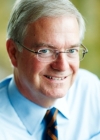
|
Scott A. Harris, President, Continental Europe, Lockheed Martin Global, Inc.
Scott A. Harris is President for Continental Europe at Lockheed Martin Global Inc., based in Brussels, Belgium. He oversees the business development activities and serves as the corporate representative for Lockheed Martin throughout Europe. Prior to assuming this position in July 2002, he served as Vice President for Plans and Analysis at Lockheed Martin’s corporate headquarters in Bethesda, Maryland. Harris joined Lockheed Martin in 1997 from the U.S. Department of Defense, where he served as Special Assistant to the Secretary and Deputy Secretary of Defense. Before that, he was Senior Analyst in national security affairs and Associate Director of the Washington office of RAND. He has also served on Capitol Hill as the National Security Advisor to Senate Majority Leaders Robert C. Byrd and George J. Mitchell.
|
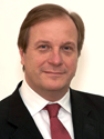 |
Frederick Kempe, President and CEO, Atlantic Council of the United States
Fred Kempe is the president and Chief Executive Officer of the Atlantic Council since December 1, 2006. He previously had a prominent career at the Wall Street Journal, where he won national and international recognition while serving in numerous senior editorial and reportorial capacities. He is the author of three books, and a regular commentator on television and radio both in Europe and the United States. His last position with the paper was in New York, where he served as assistant managing editor, international, and "Thinking Global" columnist. Prior to that, he was for seven years the longest serving editor and associate publisher ever of the Wall Street Journal Europe, simultaneously functioning as European editor for the Global Wall Street Journal from 2002 to 2005. During this time he managed six news bureaus, several satellite offices, a Brussels news desk operation, and he oversaw European and Middle Eastern reporting. He has been a frequent television and radio commentator for, among others, CNBC, the BBC, and German radio and television. As managing editor of the Wall Street Journal Europe from 1992–1997, he founded and managed the Central European Economic Review (CEER), which covered the countries of the former Soviet bloc. In 1993 he also co-founded Convergence, a magazine on Europe’s digital economy. Kempe joined Journal in 1981 in London before opening the paper's Vienna bureau in 1984. He transferred to Washington, D.C. in 1986 as chief diplomatic correspondent, and in 1990 opened its Berlin bureau. Kempe is a graduate of the University of Utah and has a Master’s Degree from Columbia University Graduate School of Journalism, where he was a member of the International Fellows program in the School of International Affairs.
|
|
Karel Kovanda, Governor and EU Representative, Asia-Europe Foundation
Karel Kovanda became governor of the Asia-Europe Foundation in 2011. He was previously Deputy Director General for External Relations in the European Commission from 2005 to 2010. His areas of responsibility included the Commission’s contribution to the development of a European common foreign and security policy, multilateral relations, human rights and relations with North America, East Asia, Australia and New Zealand. Kovanda was also the Political Director for the European Commission in bilateral relations and the G8 process. From 1991 to 2005, he worked in senior positions for the Czechoslovak and Czech foreign services. He served as the Czech Ambassador to NATO from 1998 to 2005 and to the UN from 1993 to 1997, including a stint on its Security Council in 1994. During the previous 20 years he taught political science in Southern California and from 1980 to 1990 worked as a manager with international responsibilities in the U.S. private sector. Kovanda was active in the Czech student movement opposing the Communist regime from 1964 to 1969 when the national students' union, of which he was president at the time, was banned.
|
|
|
Ģirts Kristovskis, Minister of Foreign Affairs, Latvia
Ģirts Valdis Kristovskis has been Minister of Foreign Affairs of the Republic of Latvia since 2010. He has previously held numerous positions in Latvian politics, including a term as Minister of Defence. He began his career in 1984 as a senior engineer at Ventspils Inter-Collective Farms Production and Supplies Enterprise. He was Deputy of the Ventspils People's Deputies Council (City Government) from 1989 to 1994. From 1991 to 1993, he was also Chief of Staff of the National Guard. Between 1990 and 2000, he sat on numerous committee's related to defence affairs, whilst also being Minister of Interior in 1993 and Minister of Defence in 1998. In 2004 he became a Member of the European Parliament for the For Fatherland and Freedom/LNNK. He was subsequently elected to the Riga City Council, where he became leader of the opposition, before taking up his current position in 2010.
|
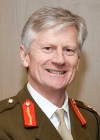 |
Lt. Gen. David Leakey, Former Director General of the European Union Military Staff
Lieutenant General David Leakey has commanded forces and operations in a number of theatres, notably in the Balkans. He has held senior defence, security and international appointments in the UK Ministry of Defence and in Brussels, most recently as the Director General of the EU Military Staff. He was commissioned into the Royal Tank Regiment in 1971, and has served in UK, Cyprus, Northern Ireland, Germany, the Balkans and Canada. After attending the Army Staff College at Camberley in 1984 he held a variety of high-level positions. In 1995 he attended the Higher Command and Staff Course at Camberley and, later that year, was the UK Military Representative in Dayton at the Bosnia peace negotiations, and was later deployed as part of the NATO (IFOR and SFOR) operation in Bosnia. He was Director of Military Operations in the Ministry of Defence 1997-1999 and subsequently attended the Royal College of Defence Studies before becoming Chief of Staff Northern Ireland in 2001. He commanded the European Force (EUFOR) responsible for stability and security in Bosnia and Herzegovina in 2004 and 2005. From 2007 to 2010 he was Director General of the European Union Military Staff. He is active in a number of international, commercial, security and academic groups.
|
|
|
Janusz Onyszkiewicz, President of the Council of the Euro-Atlantic Association, Poland
Dr Janusz Onyszkiewicz is President of the Council of the Euro-Atlantic Association in Poland, the President of the International Board of the International Centre for Democratic Transition in Budapest and a member of the Executive Committee of the Centre for International Relation in Warsaw. As a member of the democratic oposition since the mid 1960’s, Mr. Onyszkiewicz was active in strikes and demonstrations in 1968 for freedom of speech and research. He was one of the organizers of “Solidarity Movement” in Warsaw region in 1980 and was its National Spokesman until 1989. He was also a member of the National Executive (Presidium). From 1989 to 2001 he served as a Member of the Polish Parliament, including periods on the Executive Committee of the Inter-Parliamentary Union the Polish delegations to the WEU and NATO Parliamentary Assemblies. He has also held many significant positions in the Polish government, including two periods as Minister of National Defence, in 1991 and 1997 respectively. He is a member of the Democratic Party (Union for Freedom) and was its President from 2006 to 2009, in which time he was also the vice-president of the Foreign Relations Commission of the EP.
|
|
Magnus Ovilius, Senior Vice President for Government Relations, Smiths Group
Magnus Ovilius is responsible for global government relations issues & group initiatives for Smiths Group. Prior to joining Smiths Group, Ovilius was a senior civil servant with the European Commission where he has held various management positions, most recently as Head of Preparedness and Crisis Management in the Directorate General for Justice Freedom and Security.
Ovilius was responsible for the formulation, implementation and evaluation of European Union counter-terrorism policies including defence-related aspects of counter-terrorism, law enforcement led civil protection, critical infrastructure protection, crisis management, CBRNE policies, G8 Roma/Lyon meetings and Security Research.
Ovilius's career includes being posted as a diplomat responsible for operations and coordination of cooperation to the Russian Federation representing the European Commission. Furthermore, Ovilius has military training as an officer with the Swedish Armed Forces (Royal Coastal Artillery) serving as an operations officer in the UN Forces in Lebanon.
He holds a degree of Master of Laws from the University of Lund in Sweden.
|
|
|
William P. Pope, Senior Advisor for Europe, Permanent Mission of the United States to the United Nations in New York
William P. Pope is the Senior Advisor for Europe in the Permanent Mission of the United States to the United Nations in New York. A former member of the US Senior Foreign Service, Mr. Pope’s tours have included Rome, The Hague, Pretoria, Paris, Belgrade and Zagreb. He has held a number of high-level positions in Washington, most recently as the State Department’s Acting Coordinator for Counterterrorism. He is a Policy Fellow at the School of Public Policy at George Mason University and is on the Board of Trustees of the Michael Stern Parkinson’s Research Foundation at Rockefeller University. He has also previously been Vice President for Homeland Security for MPRI, engaged in defense, security and organizational programs in the U.S and overseas.
|
 |
Jamie Shea, Deputy Assistant Secretary General for Emerging Security Challenges, North Atlantic Treaty Organisation (NATO)
Prior to taking up his current position, Jamie Shea was Director of Policy Planning in the Private Office of the Secretary General from 2005 to 2010. He was Director of the Office of Information and Press of NATO from 2000 to 2003 and in May 2003 was appointed to the position of Deputy Assistant Secretary General for External Relations in the new Public Diplomacy Division. He was also NATO Spokesman from 1993 to 2000. In addition to his NATO responsibilities, Shea also holds a number of academic positions, most notably with the Collège d’Europe in Bruges, the Brussels School of International Studies of the University of Kent, and Sussex University, where he is a visiting lecturer.
|
|
Gen. Sir Rupert Smith, Former Deputy Supreme Commander Allied Powers Europe
General Sir Rupert Smith is one of the most senior international practitioners in the use of force. In his last decade of service, prior to his retirement from the British Army in 2002, he was Deputy Supreme Commander Allied Powers Europe (DSACEUR) 1998-2001, covering NATO's Balkan operations, including the Kosovo bombing, and the development of the European Defence and Security Identity (ESDI). Prior to that he was the General Officer Commanding in Northern Ireland, 1996-1998; Commander UNPROFOR in Bosnia, 1995, including the creation and command of the Rapid Reaction Force that broke the siege of Sarajevo, supported by NATO bombings; the Assistant Chief of Defence Staff for Operations, 1992-1994; and General Officer Commanding 1 (UK) Armoured Division, 1990-1992, including the Gulf War. Born in 1943, Rupert Smith was educated at Haileybury, ISC, and the Royal Military Academy Sandhurst. He enlisted in 1962 and was commissioned into the Parachute Regiment in 1964. He has served in East and South Africa, Arabia, the Caribbean, Europe and Malaysia – and has had under his command troops and officers from across the globe. He is a fellow of the Royal Geographical Society.
|
 |
Walter Stevens, Director, Crisis Management and Planning Directorate (CMPD), European External Action Service (EEAS)
Walter Stevens is the Director of the EEAS's Crisis Management and Planning Directorate since March 2011. From September 2009 to February 2011 Stevens was the Belgian Ambassador to the Political and Security Committee. He was previously employed as Deputy Chief of Staff within the Ministry of Foreign Affairs and Foreign Trade of Belgium, and since July 2007 as Chief of Staff. From 2000 to 2003 he was appointed as Diplomatic Advisor to the Belgian Prime Minister.
From 1985 to 1999 he served as official in several Belgian embassies in the world, amongst which, Washington DC, Riyadh (Saudi-Arabia), Geneva and The Hague in The Netherlands. Mr. Stevens studied at the Catholic University of Leuven and he obtained is post graduate at the Catholic University Louvain-la-Neuve (U.C.L.)
|
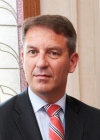
|
Leendert van Bochoven, NATO and European Defence Leader, Office of the Chairman, EMEA, IBM Nederland B.V.
Leendert van Bochoven is the NATO and European Defence leader, reporting to the EMEA Chairman's Office. In this capacity, he leads IBM's efforts at NATO and the EDA and their respective member states. Van Bochoven has been leading the solutions approach for Network Centric Operations as part of the global IBM Defence team since 2003. He joined IBM in 1998 and has been involved in the Defence business almost since the beginning. During these years he has worked on several large systems integration programs, especially in the Logistics/ERP/SAP area. He is Board member of the joint Center of Excellence on NCO between the Finnish Defence Forces and IBM.
|
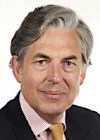 |
Geoffrey Van Orden, Member of the Subcommittee on Security and Defence, European Parliament
Geoffrey Van Orden has been a Conservative Member of European Parliament for the East of England since 1999. He previously had a wide-ranging career as a British Army officer on operational duties in many parts of the world, starting in Borneo in 1965. His last appointment was at NATO Headquarters in Brussels, from 1991 to 1994. His specialisation in counter-terrorism, which he continues from a political standpoint, began during his years in Northern Ireland in the early 1970s. He spent many years in Germany, including five in Berlin where in 1989 he was Chief of Staff and Chief G2 of the British Sector. He attended the Indian Defence Services Staff College and was a member of the Directing Staff at the German General Staff College (Führungsakademie der Bundeswehr) from 1985 to 1988. He was a member of the Cabinet Office Assessment Staff in 1990. While seeking a parliamentary seat, he was a senior official in the European Commission (External Relations) dealing with foreign policy, security and defence issues.$0 He is member of the Foreign Affairs Committee of the European Parliament, and of its Security and Defence subcommittee as well as its Delegations to Iran, India, Turkey, and the NATO Parliamentary Assembly.
|
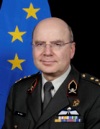 |
Lt.Gen. Ton van Osch, Director General of the European Union Military Staff
Lieutenant-General Ton van Osch joined the Royal Netherlands Military Academy in 1974. After various appointments within iinfantry and cavalry battalions, van Osch attended the US Army Command and General Staff College, followed by a tour as a Lt Col and lecturer in strategy at the NL Defence College, during which time he also studied at Leiden University for a Masters degree in Public Administration. He was commander of the 41 Field Artillery Battalion in Germany before moving to the Defence Staff then being appointment as Head of operational Policy and Training on the Army Staff. In 1999, during the Kosovo conflict, van Osch was Chief Ops (Land) at HQ SFOR and also acted as Chief of the Combined Joint Operations Centre. He was later appointed as Head of Policy Development for the Directorate of Personnel and Organization of the Royal Netherlands Army. Directly after 9/11 he was sent to US Central Command, Tampa, as an operational planner for the conflict in Afghanistan. In June 2002 van Osch was promoted Brigadier-General and became Director of Operations in the Dutch MOD. In March 2003 he became the Deputy Chief of Defence Staff for International Planning and Co-operation while being project manager for the integration of the policy headquarters of the services in the MoD. In December 2004 he took over as Commander of the Royal Military Academy. In June 2007, van Osch was appointed Military Representative of The Netherlands to the EU and NATO in Brussels. He was elected to become the new Director General of the EU Military Staff as of 28 May 2010.
|
|
|
Veronika Wand-Danielsson, Ambassador, Mission of Sweden to NATO
Veronika Wand-Danielsson has been the Swedish NATO Ambassador since 2007. She has previously served at the Permanent Representation of Sweden to the EU in Brussels and at the Directorate General for Development of the European Commission.
|
|
Nick Witney, Senior Policy Fellow, European Council on Foreign Relations (ECFR)
Nick Witney joined the Foreign and Commonwealth Office (FCO) and after a spell on the Anglo-Soviet desk in London spent four years in the Middle East, first as an Arabic language student in Beirut and Amman, then in the British Embassy in Baghdad. He spent four years as Private Secretary to the British Ambassador in Washington DC, before returning to London to work on the Common Agricultural Policy in the European Community Department, after which he took a secondment to the Ministry of Defence. After working on overseas defence policy in Africa and the Far East, he transferred to the Army Plans and Budgeting Division. He was then promoted to be Director of Operations in the Saudi Armed Forces Office, responsible for the Al Yamamah defence sales to Saudi Arabia programme. In 1990, he became Director of Nuclear Policy and Security, and in 1993 took a year’s sabbatical at RAND, in California. Between 1996 and 1998 he was the UK MOD’s Director General, Management and Organisation, with a substantial involvement in the Strategic Defence Review. In 1998 he was appointed Assistant Under-Secretary (Systems), and in 1999 became Director-General for Equipment within the UK MOD’s new Equipment Capability Customer organisation (part of the Smart Procurement initiative). His responsibilities included the Ministry’s forward Equipment Plan, and defence industrial policy. In 2002 he became the UK MOD's Director-General for International Security Policy: particular policy responsibilities included NATO, the EU, and Missile Defence. Between 2004 and 2008, he was the first Chief Executive of the European Defence Agency.
|